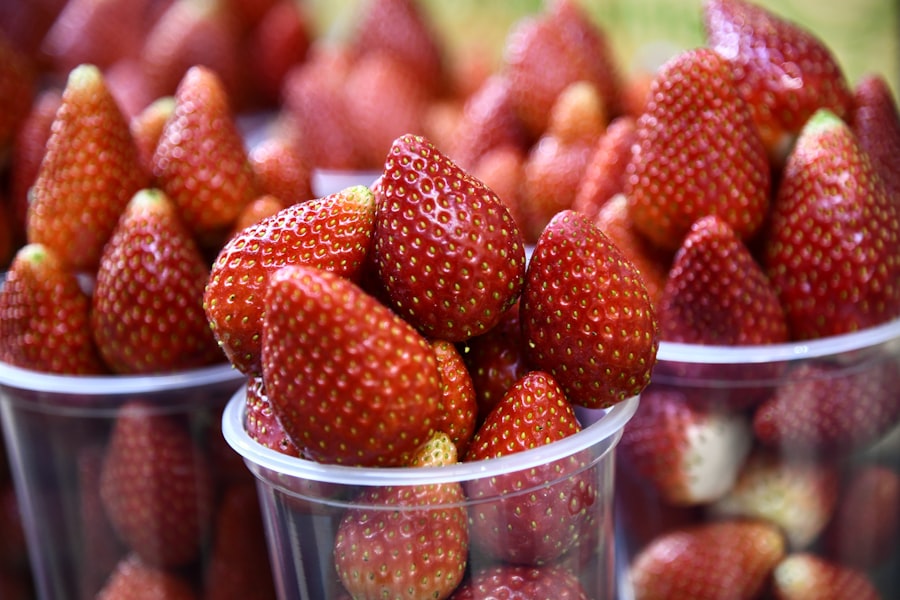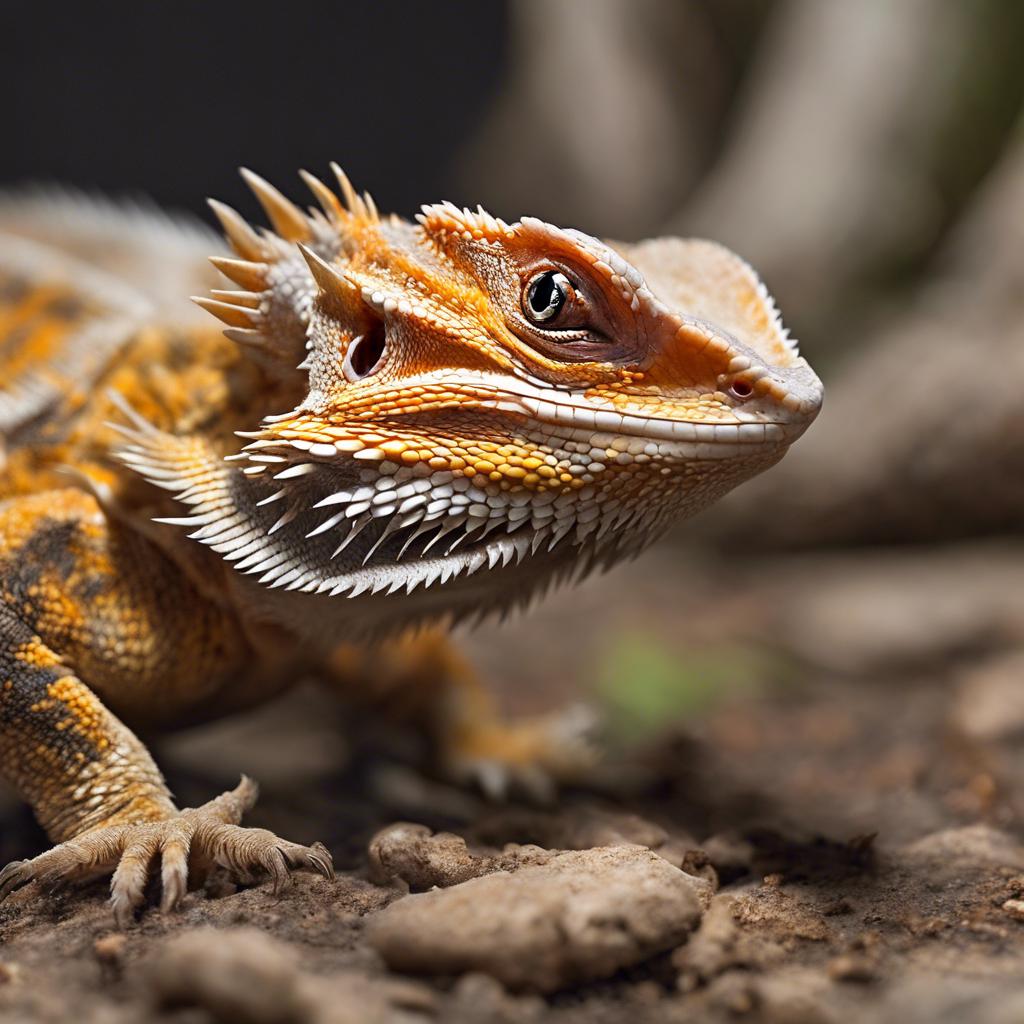Bearded dragons are popular reptile pets known for their unique appearance and docile nature. These lizards are native to Australia and have become increasingly popular as pets due to their friendly demeanor and relatively low maintenance requirements. One important aspect of caring for a bearded dragon is providing them with a balanced and nutritious diet. While there are many commercially available reptile foods on the market, some owners choose to supplement their pet's diet with live insects, such as nightcrawlers worms.
Nightcrawlers worms, also known as earthworms, are a common type of worm that can be found in many gardens and soil environments. They are often used as fishing bait but can also be a nutritious food source for various animals, including bearded dragons. These worms are rich in protein, vitamins, and minerals, making them an excellent addition to a bearded dragon's diet. However, it is important to ensure that the worms are properly prepared and fed in moderation to avoid any potential health risks.
Key Takeaways
- Nightcrawlers worms are a nutritious treat for bearded dragons.
- Nightcrawlers worms should be prepared by washing and gut-loading them before feeding.
- Bearded dragons should only eat a few nightcrawlers worms per week as a treat.
- Nightcrawlers worms should not be the sole source of nutrition for bearded dragons.
- Bearded dragons require proper care and attention to maintain their health and well-being.
Nutritional Value of Nightcrawlers Worms for Bearded Dragons
Nightcrawlers worms offer several nutritional benefits for bearded dragons. They are an excellent source of protein, which is essential for the growth and development of these reptiles. Protein helps support muscle growth, tissue repair, and overall body function. In addition to protein, nightcrawlers worms also contain essential vitamins and minerals that contribute to a healthy diet for bearded dragons.
Compared to other common bearded dragon foods, such as crickets or mealworms, nightcrawlers worms have a higher moisture content. This can be beneficial for bearded dragons that may not drink enough water on their own. The moisture from the worms can help keep the lizard hydrated and prevent dehydration, which is a common issue in captive reptiles.
Preparing Nightcrawlers Worms for Bearded Dragons
Before feeding nightcrawlers worms to your bearded dragon, it is important to properly prepare them to ensure they are safe and healthy for your pet. Here is a step-by-step guide on how to prepare nightcrawlers worms for bearded dragons:
1. Purchase fresh and healthy nightcrawlers worms from a reputable source. Avoid using worms that have been exposed to pesticides or other harmful chemicals.
2. Rinse the worms thoroughly with clean water to remove any dirt or debris.
3. Place the worms in a container with a lid and provide them with a nutritious substrate, such as coconut fiber or peat moss. This will help keep the worms healthy and provide them with additional nutrients.
4. Keep the container in a cool and dark place, such as a basement or refrigerator, to maintain the worms' freshness and prevent them from escaping.
5. Before feeding the worms to your bearded dragon, dust them with a calcium supplement powder. This will help ensure that your pet receives the necessary calcium for bone health.
How Many Nightcrawlers Worms Should Bearded Dragons Eat?
The number of nightcrawlers worms that bearded dragons should eat depends on their size and age. As a general guideline, adult bearded dragons can be fed 2-3 worms per feeding, while younger dragons may only need 1-2 worms. It is important to monitor your pet's food intake and adjust the portion size accordingly to prevent overfeeding or underfeeding.
It is also worth noting that nightcrawlers worms should not be the sole source of food for bearded dragons. These lizards require a varied diet that includes a mix of insects, vegetables, and fruits. Feeding too many worms can lead to an imbalance in nutrients and may cause health issues in the long run. It is best to consult with a reptile veterinarian or experienced reptile owner to determine the appropriate feeding schedule and portion sizes for your specific bearded dragon.
Can Nightcrawlers Worms Be a Regular Part of Bearded Dragon Diet?
While nightcrawlers worms can be a nutritious addition to a bearded dragon's diet, they should not be the sole or regular source of food. Variety is key when it comes to providing a balanced diet for these reptiles. In addition to worms, bearded dragons should also be fed a mix of insects, such as crickets and mealworms, as well as a variety of vegetables and fruits.
Feeding a diverse range of foods ensures that bearded dragons receive all the necessary nutrients for optimal health. Each food item provides different vitamins, minerals, and other essential nutrients that contribute to the overall well-being of the lizard. By offering a varied diet, you can help prevent nutritional deficiencies and promote a healthy immune system in your pet.
Potential Risks of Feeding Nightcrawlers Worms to Bearded Dragons

While nightcrawlers worms can be a healthy treat for bearded dragons, there are some potential risks associated with feeding them to these reptiles. One risk is the possibility of parasites or bacteria present in the worms. It is important to source the worms from a reputable supplier and properly prepare them to minimize this risk. Additionally, overfeeding worms can lead to obesity and other health issues in bearded dragons. It is crucial to monitor your pet's food intake and provide a balanced diet.
Another potential risk is the size of the worms. If the worms are too large, they may pose a choking hazard for smaller or younger bearded dragons. It is important to choose appropriately sized worms or cut them into smaller pieces before feeding them to your pet. Always supervise your bearded dragon while it is eating to ensure it does not have any difficulties swallowing or digesting the worms.
Other Foods to Supplement Bearded Dragon Diet
In addition to nightcrawlers worms, there are several other foods that can be used to supplement a bearded dragon's diet. These include:
1. Crickets: Crickets are a staple food for bearded dragons and provide a good source of protein. They should be gut-loaded with nutritious foods before feeding them to your pet.
2. Mealworms: Mealworms are another common insect food for bearded dragons. They are high in protein and fat, so they should be fed in moderation.
3. Vegetables: Bearded dragons can eat a variety of vegetables, such as kale, collard greens, and bell peppers. These provide essential vitamins and minerals.
4. Fruits: Fruits, such as strawberries, blueberries, and mangoes, can be offered as occasional treats for bearded dragons. They are high in natural sugars and should be fed sparingly.
5. Commercial reptile foods: There are many commercially available reptile foods on the market that are specifically formulated for bearded dragons. These can be used as a supplement to their diet but should not replace fresh foods entirely.
Importance of Proper Bearded Dragon Care
Proper care is essential for the health and well-being of bearded dragons. These reptiles have specific requirements when it comes to their habitat, diet, and overall environment. Providing the right conditions and meeting their needs will help ensure that they live a long and healthy life.
Bearded dragons require a spacious enclosure with appropriate lighting and heating to mimic their natural habitat. The enclosure should have a temperature gradient, allowing the dragon to regulate its body temperature by moving between warmer and cooler areas. UVB lighting is also crucial for proper calcium absorption and overall health.
Regular cleaning of the enclosure is necessary to maintain hygiene and prevent the buildup of bacteria or parasites. Bearded dragons should also have access to fresh water at all times, and their food should be provided in a clean and safe manner.
Signs of Illness in Bearded Dragons
It is important for bearded dragon owners to be aware of the common signs of illness in these reptiles. Some signs that may indicate a health issue include:
1. Loss of appetite or weight loss
2. Lethargy or lack of energy
3. Changes in bowel movements, such as diarrhea or constipation
4. Abnormal shedding or skin issues
5. Respiratory problems, such as wheezing or difficulty breathing
6. Swelling or lumps on the body
7. Changes in behavior, such as aggression or excessive hiding
If you notice any of these signs in your bearded dragon, it is important to seek veterinary care as soon as possible. Early detection and treatment can greatly improve the chances of a successful recovery.
Nightcrawlers Worms as a Treat for Bearded Dragons
In conclusion, nightcrawlers worms can be a healthy and safe treat for bearded dragons when fed in moderation and prepared properly. These worms offer several nutritional benefits and can be a valuable addition to a varied diet for these reptiles. However, it is important to source the worms from a reputable supplier, prepare them correctly, and monitor your pet's food intake to prevent any potential risks.
Remember that nightcrawlers worms should not be the sole source of food for bearded dragons. A balanced diet that includes a mix of insects, vegetables, and fruits is essential for their overall health and well-being. Providing proper care, including a suitable habitat, regular cleaning, and access to fresh water, is also crucial for the health of your pet.
By following these guidelines and providing your bearded dragon with a nutritious and varied diet, you can help ensure that they live a long and happy life as your beloved pet.
If you're wondering whether bearded dragons can eat nightcrawlers worms, you'll find all the answers you need in this informative article from Reptile Wizard. They provide expert advice on reptile keeping and have a wide range of articles covering various topics related to bearded dragons. From understanding the causes of a bearded dragon's death with its mouth open to exploring the safety of pothos plants for these reptiles, Reptile Wizard covers it all. To learn more about feeding your bearded dragon black beans or black olives, they have dedicated articles for that too. Check out their website at https://reptilewizard.com/ for more valuable information on caring for your bearded dragon.
FAQs
What are nightcrawlers worms?
Nightcrawlers worms are a type of earthworm that are commonly used as fishing bait. They are also known as dew worms or Canadian nightcrawlers.
Can bearded dragons eat nightcrawlers worms?
Yes, bearded dragons can eat nightcrawlers worms as part of their diet. However, they should not be the sole source of food and should be given in moderation.
What are the nutritional benefits of feeding nightcrawlers worms to bearded dragons?
Nightcrawlers worms are a good source of protein and calcium, which are important for the growth and development of bearded dragons.
How should nightcrawlers worms be prepared before feeding them to bearded dragons?
Before feeding nightcrawlers worms to bearded dragons, they should be washed thoroughly to remove any dirt or debris. They can be fed live or frozen, but should not be fed dried or canned.
Are there any risks associated with feeding nightcrawlers worms to bearded dragons?
There is a risk of impaction if bearded dragons are fed too many nightcrawlers worms or if the worms are too large. It is important to monitor the size and frequency of feedings to prevent this from happening.

